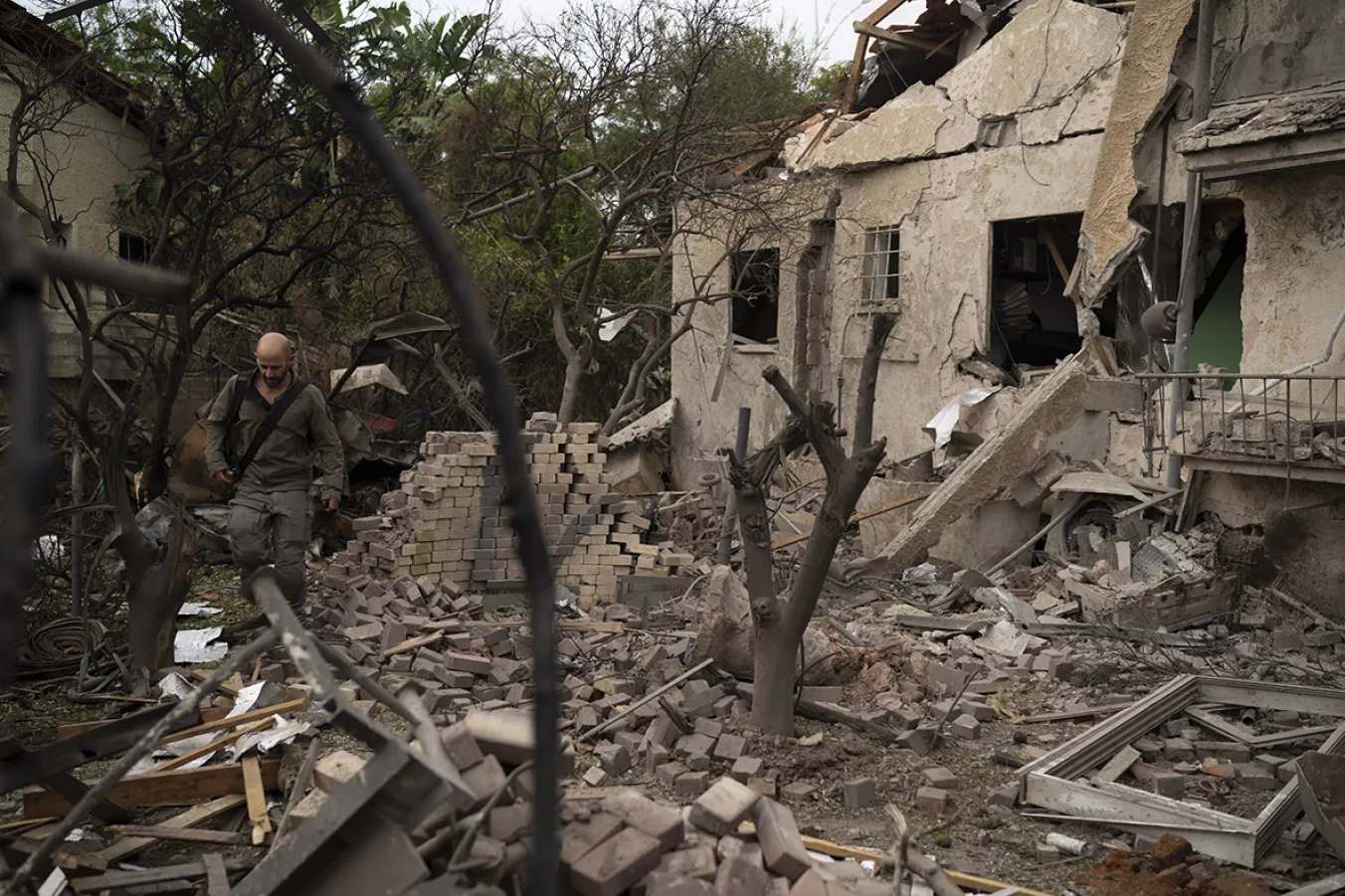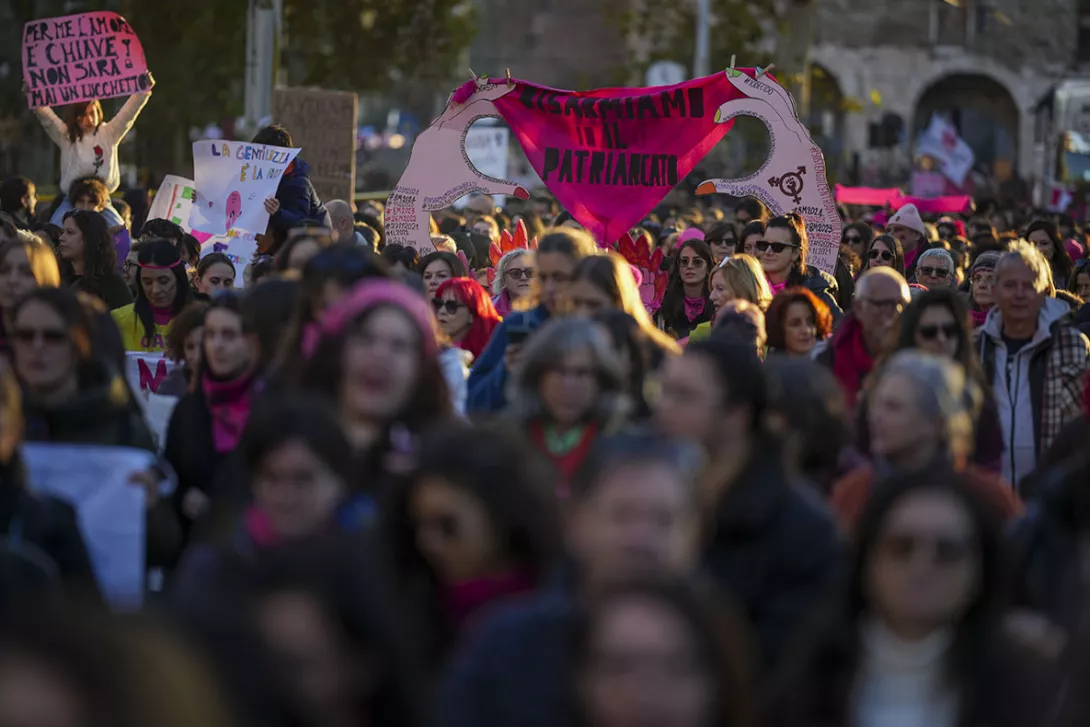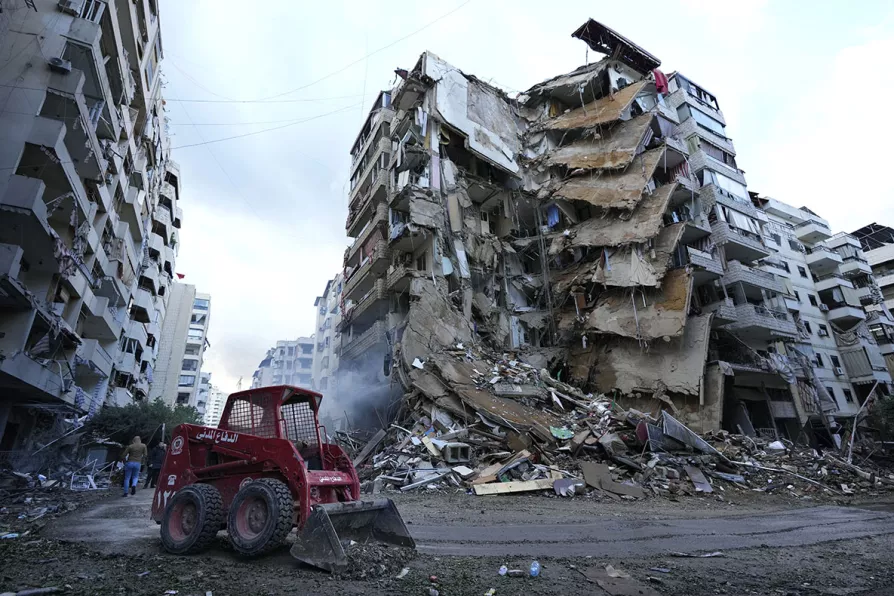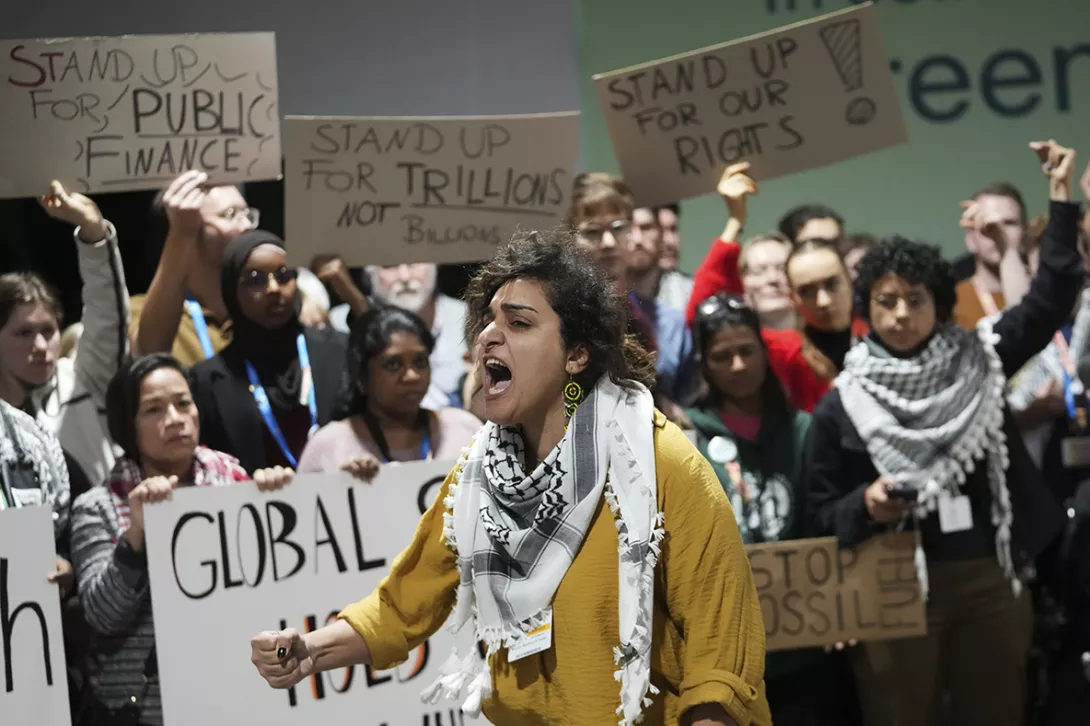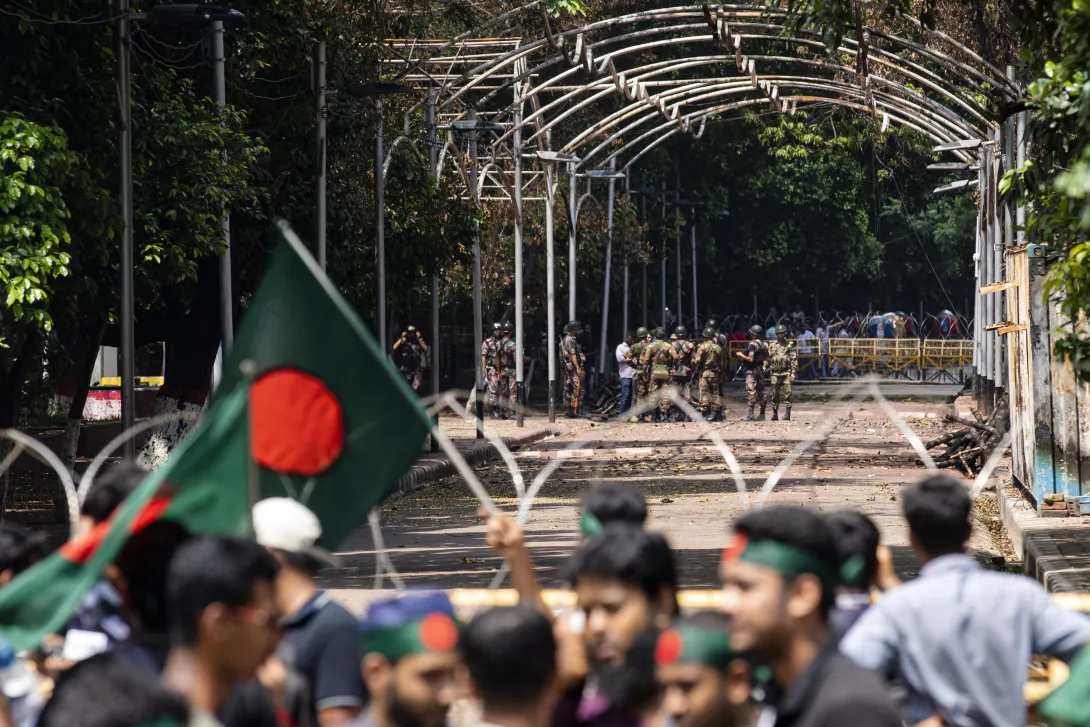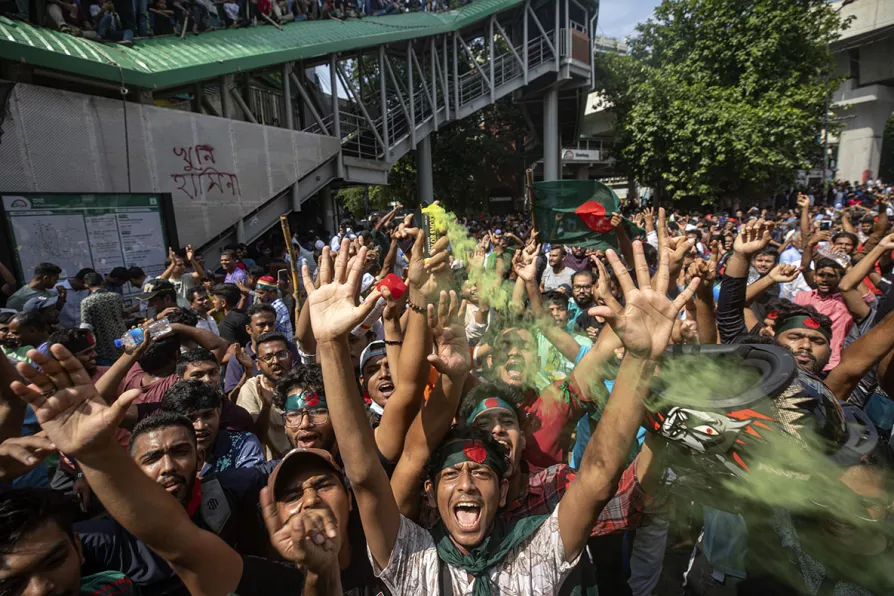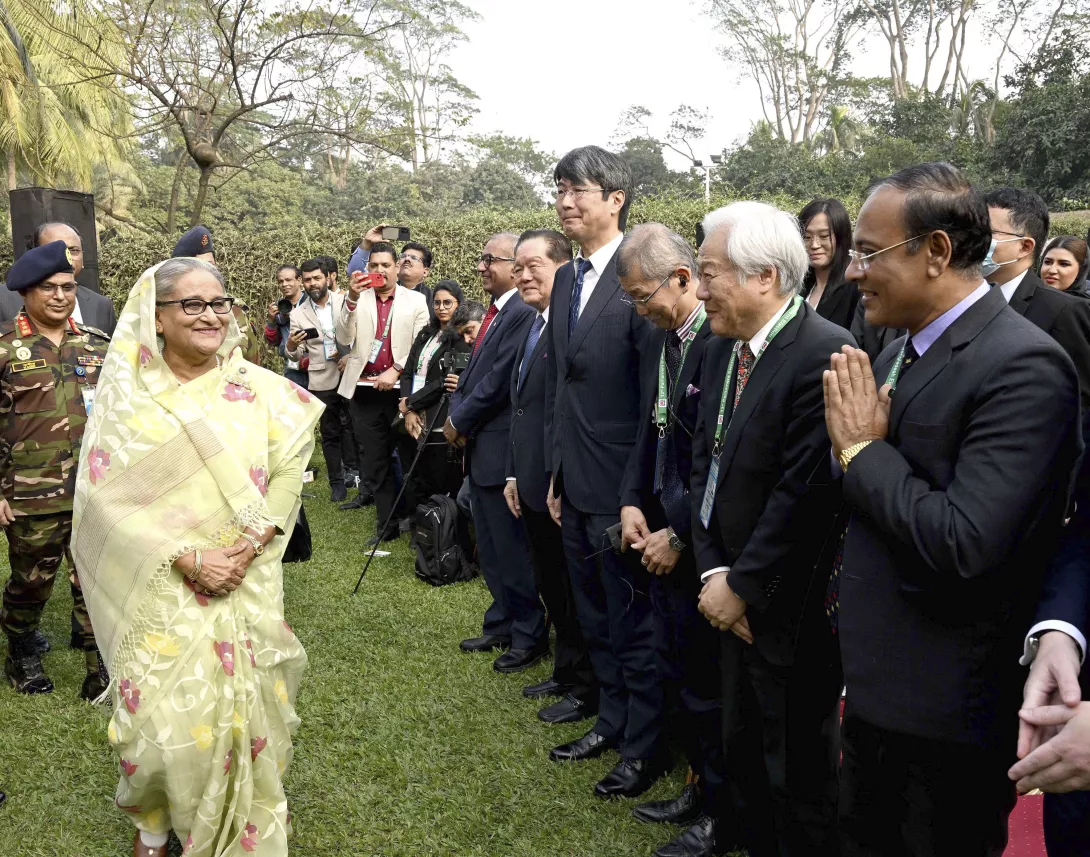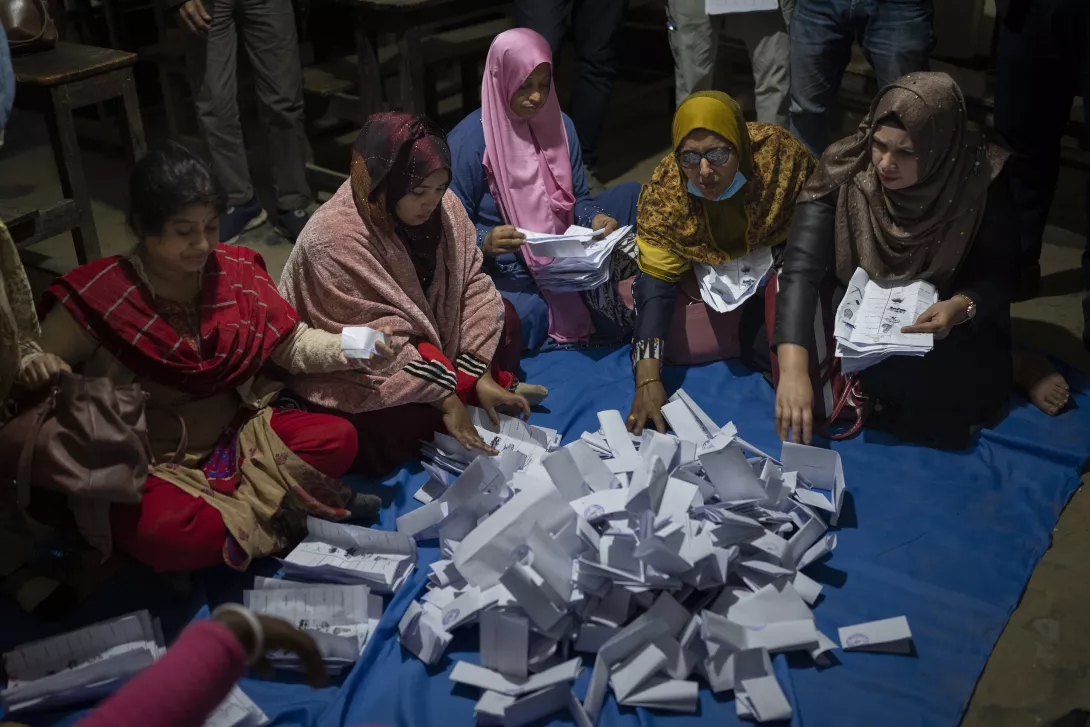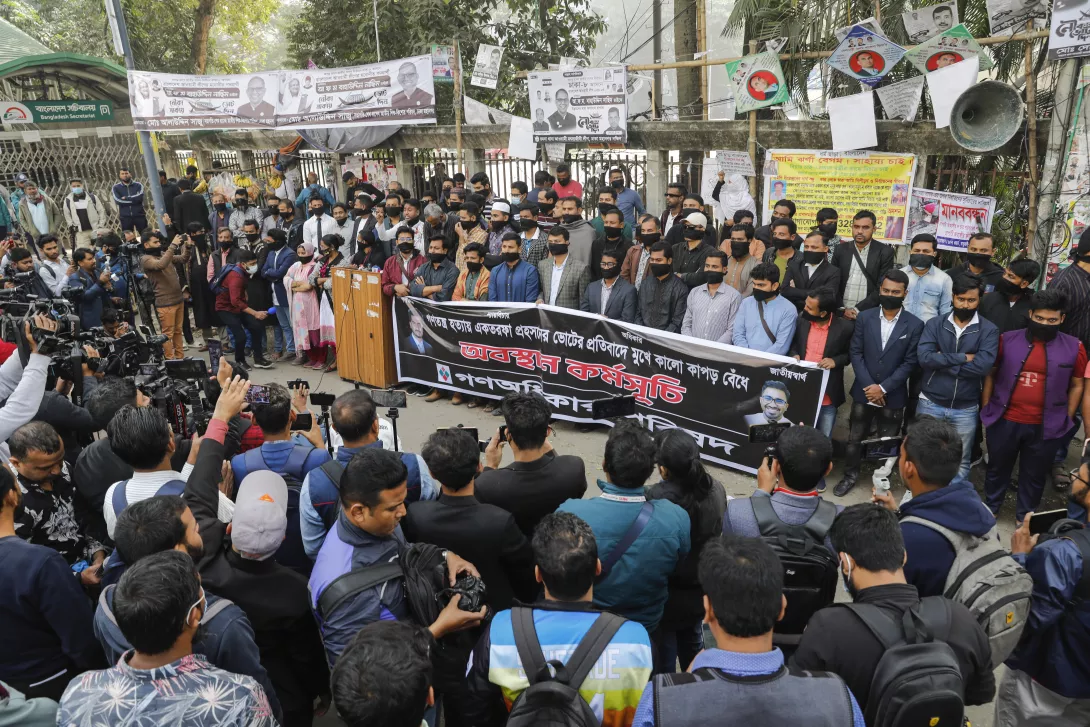
PRIME MINISTER Sheikh Hasina has swept to power for a fourth consecutive term in Bangladesh, following an election on Sunday that was boycotted by opposition parties.
Her Awami League party won 224 seats out of 299, according to local media, cementing a majority in parliament and extending her 15-year rule.
Ms Hasina’s victory, which was widely seen as inevitable, had a low voter turnout.
Of the 119 million registered voters, some 40 per cent took part in what was a severely fractured climate that saw opposition members jailed ahead of the polls.
The clampdown on political foes and stifling of dissent, analysts say, puts Bangladesh’s democracy in a fragile place, risks triggering political turmoil and may test some of its diplomatic ties.
There was widespread violence during campaigning and the main opposition Bangladesh Nationalist Party and its allies boycotted the election, saying that Ms Hasina’s government could not oversee free and fair polls.
The Communist Party of Bangladesh had called on voters to stay at home on polling day after labelling the poll as a “joke election,” and accused Ms Hasina of “destroying democratic rights.”
The government has consistently defended the polls as open and inclusive, but critics have pointed out that many smaller opposition groups and independent candidates belonged to the ruling party, which left voters with few options.
The controversy surrounding the election also risks straining Bangladesh’s ties with the United States, the biggest buyer of its garment exports.
Relations between the two sides have become more tense, especially after Washington vowed to impose visa restrictions on anyone disrupting the electoral process.
The move annoyed Ms Hasina, who accused the US of trying to plot her downfall.
The US has in the past attempted to use Bangladesh as a client nation in the region in its cold war with China, which on Monday sent congratulations to Ms Hasina on her victory.
Pierre Prakash, Asia director at the International Crisis Group, a think tank that researches global conflict, said: “We’ll have to see how the US behaves. There could be sanctions on the horizon.”
As well as China, nations such as India, the Philippines and Sri Lanka all welcomed Ms Hasina’s re-election.
Russia, which is building a nuclear plant in the country, also welcomed the re-election.
Ms Hasina’s biggest backer remains India, which has invested in several infrastructure projects in the country.
But there is reportedly a growing anti-Indian sentiment within Bangladesh amid perceptions that New Delhi has propped up support for Ms Hasina.
